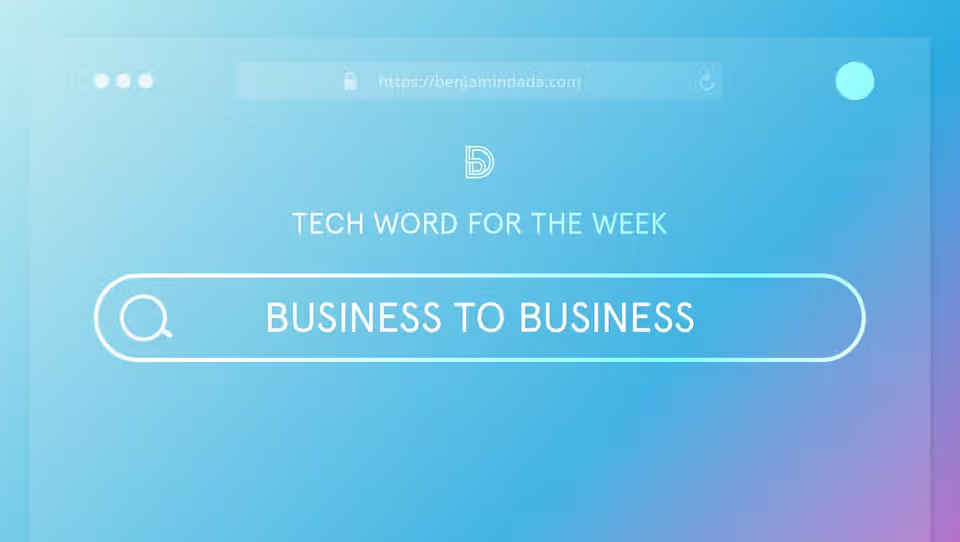Tech Word for The Week is a weekly series where we look to explain commonly used words in the tech ecosystem in a simple, engaging way.
From our previous edition, we examined Business-to-Consumer, using the analogy of Ebuka and his ride-hailing startup. The story goes as follows
Ebuka bought two Toyota Camry cars and listed them for a ride-hailing startup. He has the option of serving two distinct clients. He can target emerging startups who need a car for the mobility of their top executives but do not have an official car yet. Conversely, he could go the route of serving individual clients who just need a car for mobility.
If he chooses the latter, his startup is a business-to-customers company. But if he chooses the former his startup is a Business-to-business startup. And if he decides to serve both clientele, then Ebuka’s startup is a hybrid of B2C and B2B.
This week, we will explore the business-to-business model.
A business-to-business means a transaction conducted between two companies, rather than between a company and an individual consumer. It’s a unique business model where businesses serve other businesses.
The goal of most business-to-business transactions is to put the consuming business in a position where they can easily serve and satisfy their clients. Rather than target a ton of customers who buy in unit prices, B2B companies focus on a small number of customers who make large purchases.
B2B could be between a wholesaler and a retailer; a production/processing company and a distribution company; a tech company to a manufacturing company. They are common in manufacturing companies as they distribute and purchase raw materials.
Benefits of B2B
- Fewer Clients
Startups who use the business to business model have fewer clients to serve compared to business to consumers. Unlike B2C, this model has few clients — the profit that B2B makes from one transaction is higher because the purchasing power of businesses is higher than that of individual customers.
- Lower Costs
With B2B, you can minimize your cost while growing your revenue. Now that most business transaction are online because of modern technology, a B2B company can achieve efficiency with less expenditure.
- Higher Profits
The B2B eCommerce market is huge, it is said to be twice as big as the B2C industry, these companies often sell their items in wholesale quantities so that buyers can get a good deal and need to restock less often.
- Increased Profitability
Rather than dissipate attention on serving tons of customers, B2Bs productively serve their few clients who would handsomely reward them.
Regardless of where your company stands today, the decision may be made for you in the end. Analysts have predicted that B2B e-commerce market growth will continue, exceeding one trillion dollars in sales by 2023. Failing to adapt to changing customer expectations will give you little ground to stand on compared to competitors that make the move to digital.
Get passive updates on African tech & startups
View and choose the stories to interact with on our WhatsApp Channel
Explore




